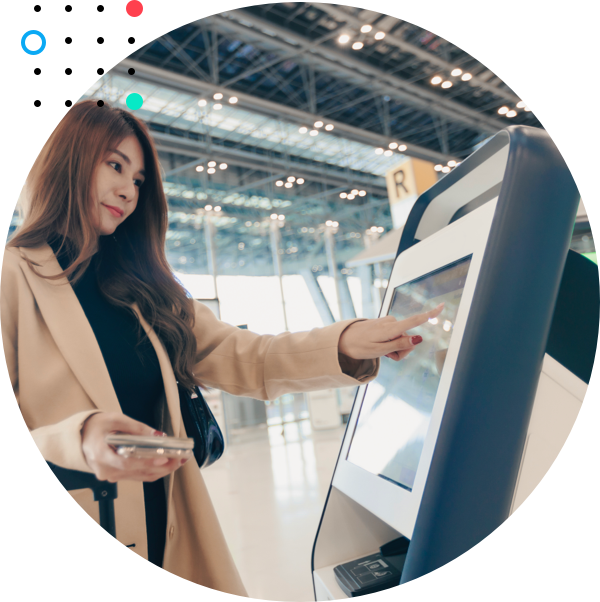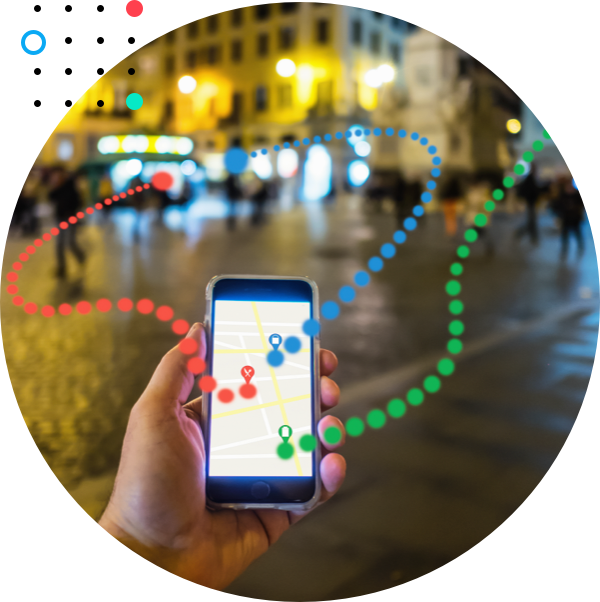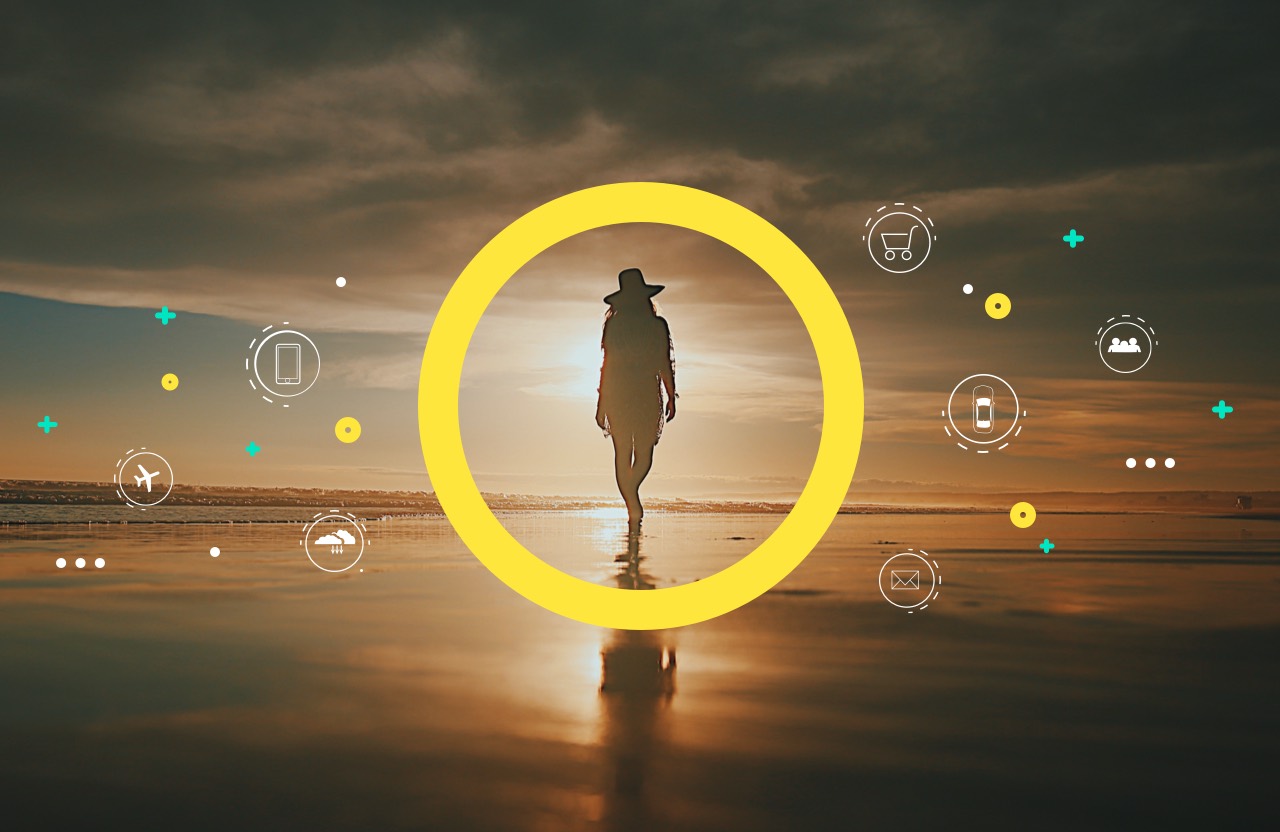What issue can we solve for you?
Type in your prompt above or try one of these suggestions
Suggested Prompt



Insights
How Smart Tourism Experiences are Served by Technology
How Smart Tourism Experiences are Served by Technology
Today’s visitor journey is fragmented. Customer data can help brands unlock seamless, digitally-enabled guest experiences within connected smart destinations.
The concept of “smart destinations” or “smart tourism” has been advancing the guest experience for years, but there’s one piece of the puzzle that the travel and hospitality industry has yet to unlock: the integration of customer data for proactive insights that enable personalization.
Smart tourism defines travel experiences that are digitally enabled and connected to technology, allowing guests to efficiently navigate through foreign cities, book activities online and utilize their mobile devices to tackle their entire itinerary.
But smart tourism is entering a new era of seamless travel, served not only by technology, but also by customer data.
“The future of smart tourism is travel experiences that are proactive,” says Mukundhan Sundaram, senior director of technology at Publicis Sapient. “You’re removing all points of friction and frustration by putting data in the hands of the customer to effectively guide their journey.”
Mukundhan Sundaram , Senior Director of Technology of Publicis Sapient
Learn how the next era of smart tourism can build guest loyalty and how customer data will transform the end-to-end guest experience.
What smart tourism is—and what it isn’t
Smart destinations are often enabled by specific technology upgrades, like mobile apps or online booking platforms, but that’s not all it is. Smart tourism is tourism that transforms the end-to-end guest experience through interconnected physical and digital technology.
“Technology upgrades implemented in a vacuum aren’t truly ‘smart,’ because they’re not grounded in the end-to-end guest experience,” says Sundaram, travel and hospitality industry expert.
Smart tourism is not just luxury travel; it applies to mass-market or affordable tourism experiences as well. Smart tourism creates seamless and luxurious experiences enabled by technology, increasing convenience and accessibility for travelers.
The next era of smart tourism, sometimes referred to as “cognitive tourism,” goes a step further by utilizing first-party customer data to proactively recommend the next step of the guest experience, whether that’s a reminder to get to the airport, an invitation for a vacation activity or a coupon for a recommended restaurant. This means no more written itineraries that need to be carried around and the ability to plan a dream vacation at the click of a button, taking much of the thinking out of the process.
Why guests crave smart destinations now more than ever
Post-COVID-19, travelers expect and rely on technology to power travel experiences across every touchpoint of their journey. Understaffed travel and hospitality brands need to use technology to bridge the gap at formerly in-person touchpoints that are becoming overwhelmed with “revenge tourism.”
But the need for smart tourism isn’t just because of a lack of staff. As travel prices continue to rise and loyalty falls, guests will revisit brands that personalize products and messaging. Almost one-third of travelers are more likely to stay in hotels that offer contactless checkout and/or personalized digital offers, according to 2022 research. Digitizing the travel experience allows brands to further tailor marketing and recommendations to customers based on their data.
Smart tourism also enables more sustainable, regenerative travel experiences that appeal to younger travelers. Roughly two-thirds of Millennials and Gen Z say that sustainability is important to them when they travel, according to the same study.
How can smart tourism transform the end-to-end travel experience?
From booking to hotel check-in and travel activities, brands can allow customers to share first-party data through mobile devices for more personalized and efficient travel experiences.
Here’s how brands can integrate customer data across each step of the travel experience:
Booking the vacation
-
Typical
- Read blogs, forums and articles to research vacation options.
- Manually enter log-in information on several different websites to receive points and discounts on bookings.
- Fill out lengthy forms with contact information for each booking.
Smart
- Go to the brand website to enter a virtual metaverse experience to explore and learn about the destination.
- Scan a QR code from the website browser to give consent for the brand to automatically access all required booking credentials stored within a [decentralized digital identity], from payment information to contact information.
- Receive personalized recommendations for travel based on metaverse activity and decentralized digital identity.

- Read blogs, forums and articles to research vacation options.
Checking in at the airport for a flight
-

Typical
- Enter the airport well in advance of the flight to stand in a long line to check bags.
- Check into flight via the website, and have to enter the flight number and remember to check in well in advance of the flight.
- Enter the long TSA line for security, and have to show your passport/ID and boarding pass.
Smart
- Airline app sends a notification to check in for your flight, and boarding information is automatically added to the app.
- App recommends what time to get to the airport based on traffic flow and locations and also shows recommendations for food around the gate area, allowing passengers to place orders for products or food in advance with stored payment methods.
- App allows passengers to check bags through a contactless method and use their phone to get through security and boarding with no queues.
Checking into a hotel for vacation
-
Typical
- Arrive at the front desk to wait in a long line.
- Front desk staff member has to check multiple databases to locate guest check-in information as the guest waits with their family and luggage.
- Guest has to juggle their ID and credit card and sign paper check-in forms and receives an envelope with room keys.
Smart
- Receive an email on the day of check-in with instructions on how to check in.
- Geo-sensing technology recognizes when you have reached the hotel property and sends a ping with the room information and room key.
- App guides visitors to their rooms and provides recommendations for initial food, activities and added amenities based on demographic information and travel history.

Accomplishing the travel itinerary
-

Typical
- Research and book the best activities near the hotel far in advance of the trip.
- Separately research and book the most convenient transportation and food options to accompany the activity.
- Check into each activity using a different ticket or pass, search deep in email inbox or print out the pass in advance.
Smart
- Receive a realistic recommended travel itinerary for the trip based on geo-location, preferences, demographics and other traveler information.
- In case of unanticipated events, the activities and overall itinerary are dynamic, with the ability to transition to new reservation times or plans depending on the situation.
- Receive proactive activity reminders for timing, transportation and necessary preparation.
In order to bring smart and even cognitive tourism experiences to life, travel brands need to connect physical and digital technology, as well as customer data, across the entire travel ecosystem. This includes city governments, payment processors, airports, airlines, hotels and more.
How Publicis Sapient creates smart destinations
Through partnerships with key industry players, Publicis Sapient helps global travel companies utilize artificial intelligence, big data, information of things, augmented and virtual reality and decentralized identity solutions to create connected travel ecosystems.
“Publicis Sapient is a global leader in smart destination solutions across geographies and sectors,” says Sundaram, travel and hospitality industry expert. “Our approach to smart tourism is customer-centric and involves a variety of stakeholders in order to be truly seamless.”
Approaching smart and cognitive tourism as an entire ecosystem rather than a singular touchpoint or brand in isolation allows hotels, airlines and cities to create frictionless and delightful travel experiences. At the same time, it creates experiences that are scalable over time and able to onboard and integrate new partners or hybrid legacy architecture.
Publicis Sapient helps brands like Miral to store every piece of information needed for travel in one place, digitally.
Contact Publicis Sapient to design and deliver a customer-centric smart tourism experience below.







